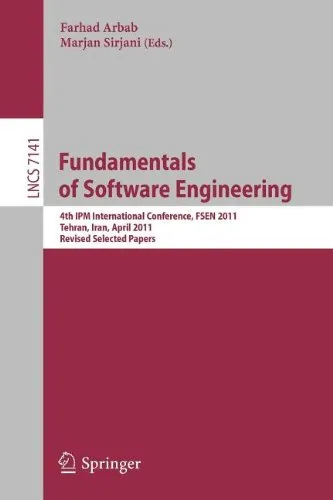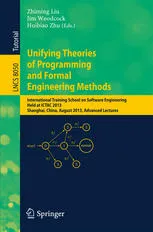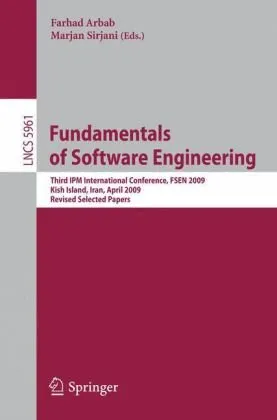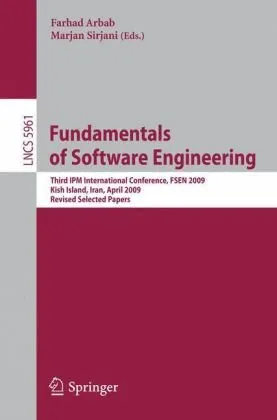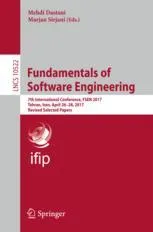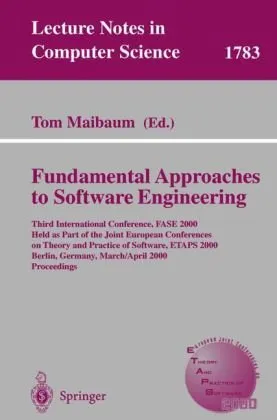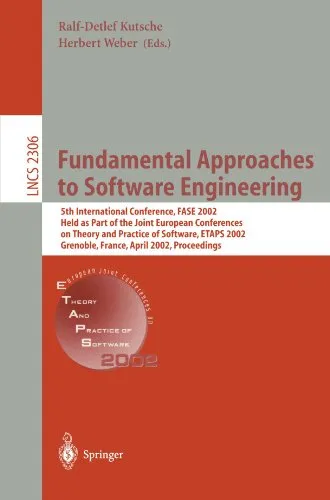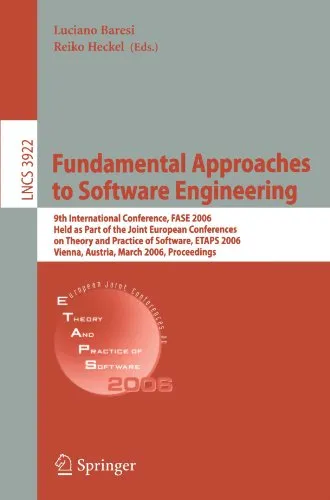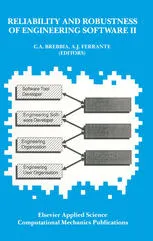Fundamentals of Software Engineering: 4th IPM International Conference, FSEN 2011, Tehran, Iran, April 20-22, 2011, Revised Selected Papers
4.0
Reviews from our users

You Can Ask your questions from this book's AI after Login
Each download or ask from book AI costs 2 points. To earn more free points, please visit the Points Guide Page and complete some valuable actions.Related Refrences:
Introduction
The book "Fundamentals of Software Engineering: 4th IPM International Conference, FSEN 2011, Tehran, Iran, April 20-22, 2011, Revised Selected Papers" is a comprehensive collection of thought-provoking and pioneering works presented at the FSEN 2011 conference. This book captures the nuanced discussions and findings of researchers and practitioners in the domain of software engineering. By blending theoretical analyses with practical applications, the book serves as an invaluable resource for academics, students, and professionals eager to deepen their understanding of the dynamic landscape of software engineering.
The International Conference on Fundamentals of Software Engineering (FSEN) convenes leading experts to address the challenges and advancements in software engineering. The fourth edition, held in 2011, was no exception, featuring groundbreaking research aimed at bridging the theoretical and applied aspects of this field. This post-conference proceedings volume includes carefully selected and peer-reviewed papers, with topics ranging from formal verification to model-driven development, ensuring sustained academic and practical relevance.
Detailed Summary
Spanning multiple topics in software engineering, the book showcases innovative contributions to areas like formal methods, design paradigms, and tools for software verification. The selected papers reflect a wide variety of approaches, techniques, and theories that collectively shape the future of software development. Key subjects discussed include:
- The advancement of formal methods in verifying software systems.
- Model-driven development as an efficient design strategy.
- The role of graph transformations and their applications in algorithm design.
- Analysis of concurrent and distributed systems for ensuring reliability.
- Novel approaches for improving security and trust in software processes.
What makes this book particularly valuable is its dedication to addressing the challenges of real-world software engineering problems. By offering a mix of theoretical underpinnings and applied solutions, it ensures its enduring relevance to both academia and industry. Each paper is accompanied by a detailed analysis of its contributions, methodologies, and implications for future work, fostering a deeper appreciation of the complexities in the field.
Key Takeaways
The book offers several important lessons and insights into modern software engineering, including:
- Formal methods significantly enhance the reliability and correctness of software systems.
- Modeling techniques play a vital role in bridging the gap between theory and implementation.
- Verification and validation methodologies are essential for robust software design.
- Concurrency and distribution require sophisticated tools for ensuring process synchronization and fault tolerance.
- Emerging challenges in software security demand continuous innovation.
Overall, the book emphasizes the importance of integrating theoretical and applied knowledge to foster innovation and address the evolving challenges in software engineering. It also highlights how collaboration across academic and professional boundaries is crucial for achieving lasting success in this field.
Famous Quotes from the Book
"Software engineering is not a solitary endeavor; it is a confluence of theory, application, and collaboration."
"Formal verification is not merely a technique; it is the cornerstone of building trustworthy systems."
"In tackling the challenges of concurrent systems, one must embrace complexity with rigor and precision."
These quotes embody the essence of the book—emphasizing the importance of rigor, innovation, and synthesis in modern software engineering practices.
Why This Book Matters
Software engineering is evolving rapidly, and the need for rigorous exploration of both foundational theories and practical implementations has never been greater. This book fulfills that need by serving as a bridge between foundational research and its real-world applications. The carefully curated papers not only provide theoretical insights but also delve into their impact on practical software development challenges.
One of the most compelling attributes of this book is its interdisciplinary focus, bringing together experts from various domains of software engineering. This convergence fosters forward-thinking strategies for addressing technical challenges such as scalability, security, and system reliability.
Furthermore, the book underscores the relevance of formal methods in modern engineering workflows, reminding readers of their importance in building reliable, error-free software. It also stresses the significance of methodologies like model-driven engineering and graph transformations in managing complex systems.
By documenting the proceedings of FSEN 2011, the book serves as a guidepost for researchers and practitioners aiming to stay at the forefront of the field. It is not merely a collection of technical papers but a vibrant testament to the transformative power of collaboration, innovation, and academic rigor in shaping the future of software engineering.
Free Direct Download
You Can Download this book after Login
Accessing books through legal platforms and public libraries not only supports the rights of authors and publishers but also contributes to the sustainability of reading culture. Before downloading, please take a moment to consider these options.
Find this book on other platforms:
WorldCat helps you find books in libraries worldwide.
See ratings, reviews, and discussions on Goodreads.
Find and buy rare or used books on AbeBooks.
1142
بازدید4.0
امتیاز0
نظر98%
رضایتReviews:
4.0
Based on 0 users review
Questions & Answers
Ask questions about this book or help others by answering
No questions yet. Be the first to ask!
